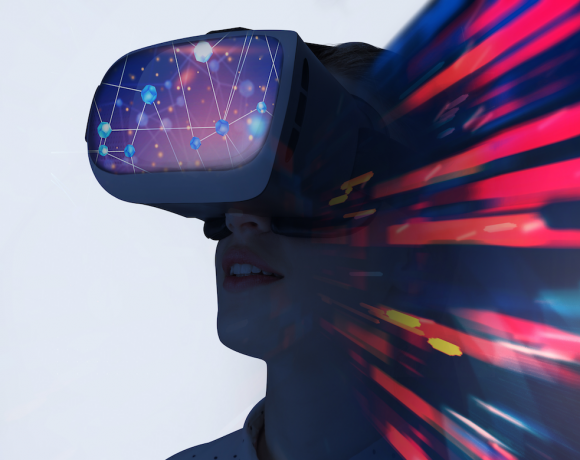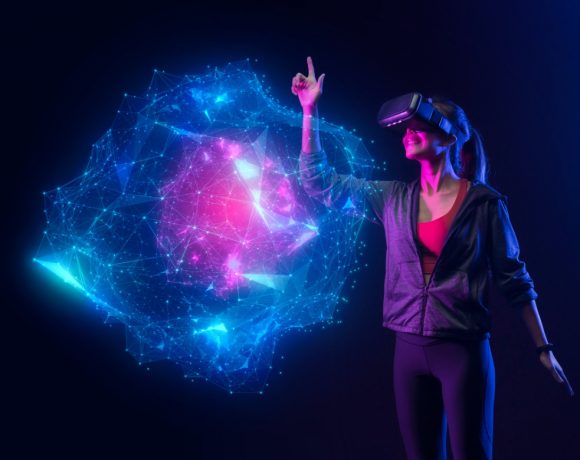- The expansion of the metaverse has encouraged industries to use it extensively while approaching the public, and virtual humans known as digital avatars became the latest megatrend in Korea.
- Rozy was first revealed to the public in December 2020 on Instagram with perfectly normal looking pictures from daily life and travels. She has appeared in advertisements for items, such as cosmetic products, hotels, cars, and food. She has even made a debut as a singer this February, releasing her first single.
- Banking is another field that is rapidly adopting metaverse characters in Korea. NongHyup Bank and Shinhan Bank have already introduced AI virtual bankers who assist their customers with bank-related services online and by phone calls.
The surge of demands for digital interaction amidst the coronavirus pandemic has led to the drastic growth of the global market for augmented reality (AR) and virtual reality (VR). Given the curtailed in-person interaction, industries had to seek other ways to reach out to their customers. According to Statista, the market size for AR and VR reached over $30 billion in 2021 and is estimated to reach $300 billion by 2024 globally.
The expansion of the virtual world – or metaverse – has encouraged industries to get the most out of it while approaching the public, and virtual humans known as digital avatars have become the latest megatrend in Korea. Following the first digital human, Rozy, more and more private companies are developing their own virtual influencers across various industries, earning millions of dollars.
Rozy was first revealed to the public in December 2020 on Instagram with perfectly normal-seeming pictures from her daily life and travels, like any other 22-year-old girl. Four months later, Sidus Studio X, a local advertising company, shocked the internet community by announcing that Rozy was a virtual influencer that it had created through 3D modelling and AI deep learning technology.
The interest in virtual humans, combined with her good-looking appearance, unique fashion style and free-spirited character, allowed Rozy to be enormously popular, especially among younger generations. Rozy has now appeared in advertisements for a myriad of items, such as cosmetic products, hotels, cars, and food. She even made her debut as a singer this February, releasing her first single. The advertisements are not limited to Instagram posts alone. Advertisement video clips featuring her are aired on TV, and there have been billboard ads designed for her on the main streets of Seoul City. With more than 126,000 followers on her Instagram as of April 2022, Rozy has become a rising star in the metaverse, and Sidus Studio X has earned profits of over $1.6 million.
Virtual humans aren’t only being used for advertisements; their roles expand and diversify in numerous aspects. Reah Keem, a virtual avatar launched in January 2021 by LG Electronics, made its debut at CES 2021 in Las Vegas. The virtual human was introduced as a 23-year-old girl and functioned as the main presenter of the company’s new products and technologies to the public throughout the entire show. At the same time, in early 2021, Lotte Home Shopping of Korea also revealed its own virtual human, Lucy. Lucy debuted as a host for home shopping for the company’s winter season products. She transformed the metaverse shopping platform into a more realistic one for the consumers shopping at home.
Banking is another field that is rapidly adopting metaverse characters in Korea. NongHyup Bank and Shinhan Bank have already introduced AI virtual bankers who assist their customers with bank-related services online and by phone calls. KB Kookmin Bank recently released its plan to develop virtual bankers in communication strategy building along with the rise of virtual world use.
Virtual humans immediately grasped consumers’ attention thanks to the pandemic, which increased social awareness and competence towards digital interactions. Consumers are becoming more familiar with the virtual world and are willing to accept new metaverse experiences as they are exposed to rapidly emerging technologies. In addition to their user-friendly attitudes, digital avatars drastically reduce risks that the companies using them might ordinarily face. Compared to real TV stars or celebrities, virtual humans do not carry any risk of being involved in social issues or scandals, thereby tarnishing the images of the companies or brands that they are advertising for. In addition, advertisers do not need to worry about potential changes in the models, such as sudden weight gain or loss.
As with most technology, there are doubts about virtual avatars. Some critics have expressed concern over the potential misuse of virtual avatars that could cause ethical problems or even lead up to crimes. However, technology developers draw a clear line that those who misuse the technology and commit crimes are the ones to be blamed, not the advanced technology itself.






NO COMMENT